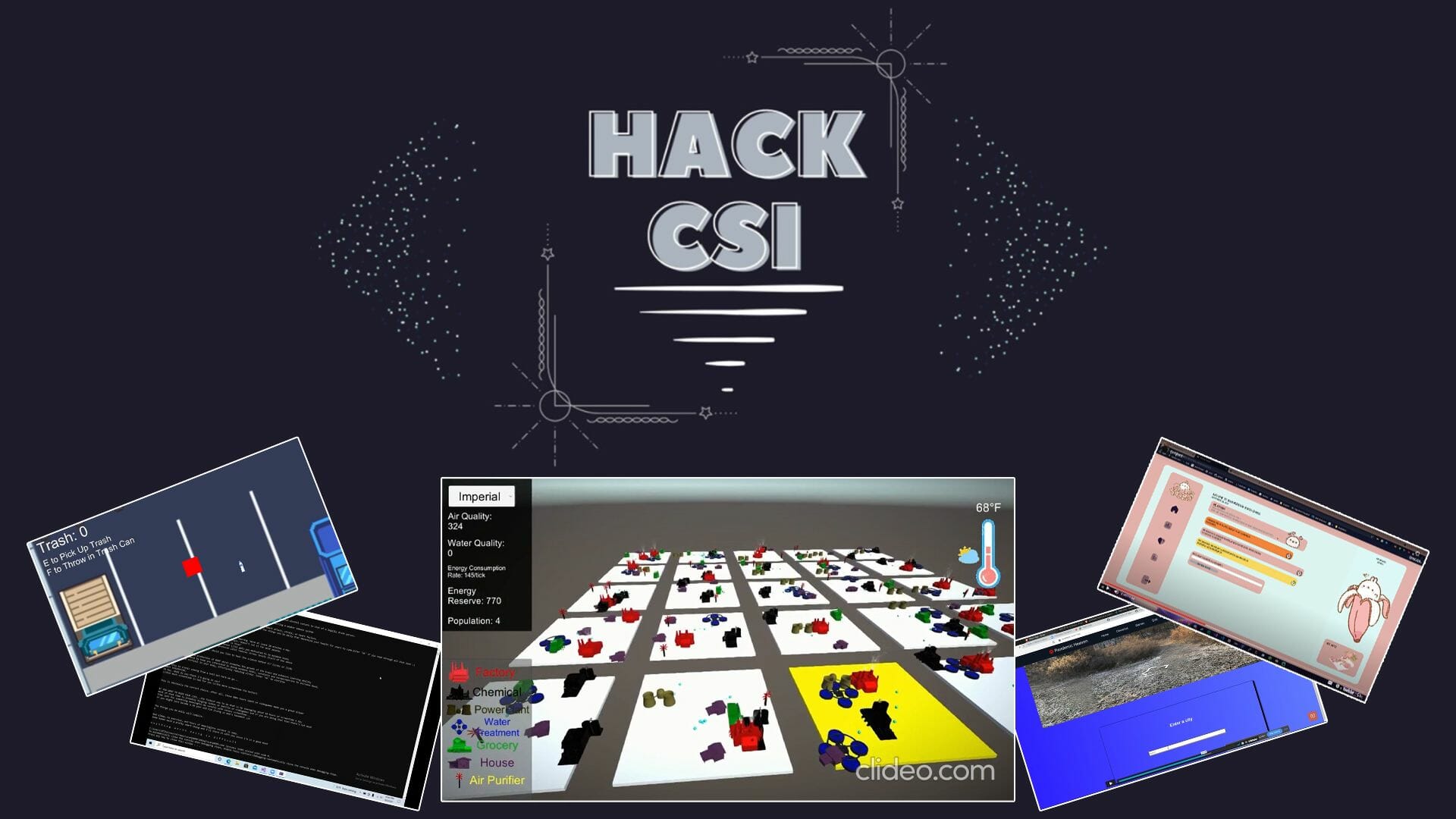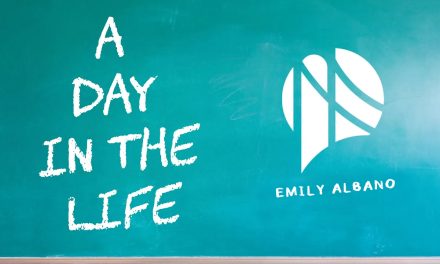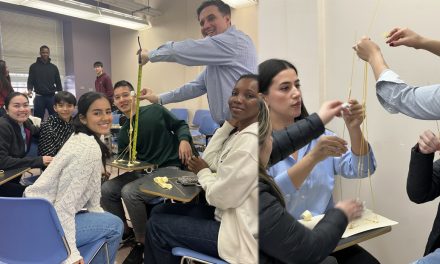In one of the first of its kind events held by the College of Staten Island, a collection of nine teams comprised of 22 Computer Science students took part in “Hack: CSI,” a competition showcasing the coding and design capability of students in various categories and under a tight deadline. The Environmental Simulator team, comprised of students Alex Zaalishvili, Yongqi Chen, and Simon Christian took top honors at the competition, but the real winners were all of those who competed and the event itself, a great offering and what is sure to be one of many more to come.
Based on the conventional and extremely popular national format, hackathons are events where small groups of computer scientists develop applications, programming, and user-interface and user-experience projects (UI/UX), to solve a given problem, usually a social dilemma facing the public. Teams submit their work to judges who then rate and rank submissions, declaring a winner.
CSI’s event, developed by Computer Science students Cheng Wang, Andrea Habib, and Gabriel Khalfin, advisor Kristi Brescia, and CSI Professor Tatiana Anderson, was a chance for CSI students to do the same in a more private arena. Teams worked remotely beginning on Friday, September 3, at 3:00pm, and made final submissions on Sunday, September 5, at midnight. The subject, kept top secret to the competing teams until competition started, asked the teams to create programming that would combat a public health issue at a time when society is trying to return to normalcy amid the COVID-19 pandemic. Teams could concentrate on issues based on education, inequality, environment, healthcare, fitness, or any other topic they wished to cover. Information Security Administrator for New Vision for Public Schools Egor Semeniak, CSI Computer Science and Mathematics junior Gabriel Khalfin, and Professor Anderson provided the judging, and the winners were announced on Friday.
“A lot of hackathons consist of hundreds and sometimes thousands of competitors, and we wanted to create an event that got our smaller group of students the experience of competing,” said Wang, who worked with Professor Anderson and Habib beginning in May to construct the event. Habib agreed, adding “We wanted to make it a more chill environment, where some students with experience can serve as mentors and advisors during the process. So, it’s a learning environment for everyone.”
For the “Hack: CSI” event, teams began by brainstorming the subject matter and then started to develop ideas from scratch. The next steps were to begin to build designs and concepts, seeing it to completion with coding and programming, transforming aspiring ideas into a usable interface, all designed to tackle their respective public health issue for users.
“Usually, these competitions are done in person,” said Wang, “for now, we are working remotely, but groups had the option of working together in the same space remotely if they chose.” Habib notes that improving technology allows remote hackathons to happen more often these days. “We are using Discord to communicate with teams throughout the competition, and all of the submissions are being handled by Devpost, an outstanding software that allows us to submit work through video.”
Because they had a huge hand in developing the competition, both Habib and Wang were ineligible to compete in the event, so instead, the pair served as advisors and mentors to the teams that competed, not to mention setting up Websites and infrastructure involved in the hackathon. Their commitment to the competition and seeing it through left Professor Anderson very impressed. “I am thrilled to see how our students are rising to create such great events as this one and I was so happy with the results of the event,” she said. “Our students don’t always get the opportunity to work in teams and with such freedom to be creative in the early stages of their studies. There were a lot of beginner-level participants in this event and yet the results were nothing short of amazing.”
Many teams made outstanding submissions that were judged. It was the Environmental Simulator team that took top honors, but other teams were able to win in individual categories. The First Steps Award in the competition was won by students Andi Kolari and Nadia Fliaha, who created Todd the Mental Health Bot project. The award for Innovation was won by Domenico Natale’s Project Cleanup. The award for Presentation was won by the team of Gianna Galard, Daniel Tangonski, and Jason Chan for their project, Fluffle. The final award for Creativity was won by the Pandemic Heaven team of Marouane Hachemi, Prince Addo, and Omar Barragan.
Anderson noted that many of the submissions not only showed the tremendous talent that Computer Science students at CSI possess, but also yielded practical and highly functional design concepts that show the potential of what many future developers at the College have to offer.
“Working with all of this new technology in areas that some of the students are unfamiliar with and on such a tight deadline can be very uncomfortable,” noted Prof. Anderson. “The fact that all of the teams showed such creativity from scratch, using new and developing technology, showed outstanding promise. We expected a lot of simple templates and prototypes, projects that would be still in the idea-phase, so we were amazed by the level of completion and workable projects we received. I believe the right motivation was the key. Andrea, Cheng, and Gabriel were able to reach young programmers’ souls and left them fired up for the whole hackathon event. I was so impressed with all of the teams and organizers.”
For Wang and Habib, the pair are looking forward to creating more “Hack: CSI” events in the future and are eager for CSI students to highlight their skills at future CUNY events and even bigger, nationally prominent competitions.
“This event was a great start for our club, since it is the first hackathon we have ever hosted,” Wang said. “We learned a lot from the trials of this event and wish to take that knowledge and build something bigger and better in the upcoming spring semester.”

















